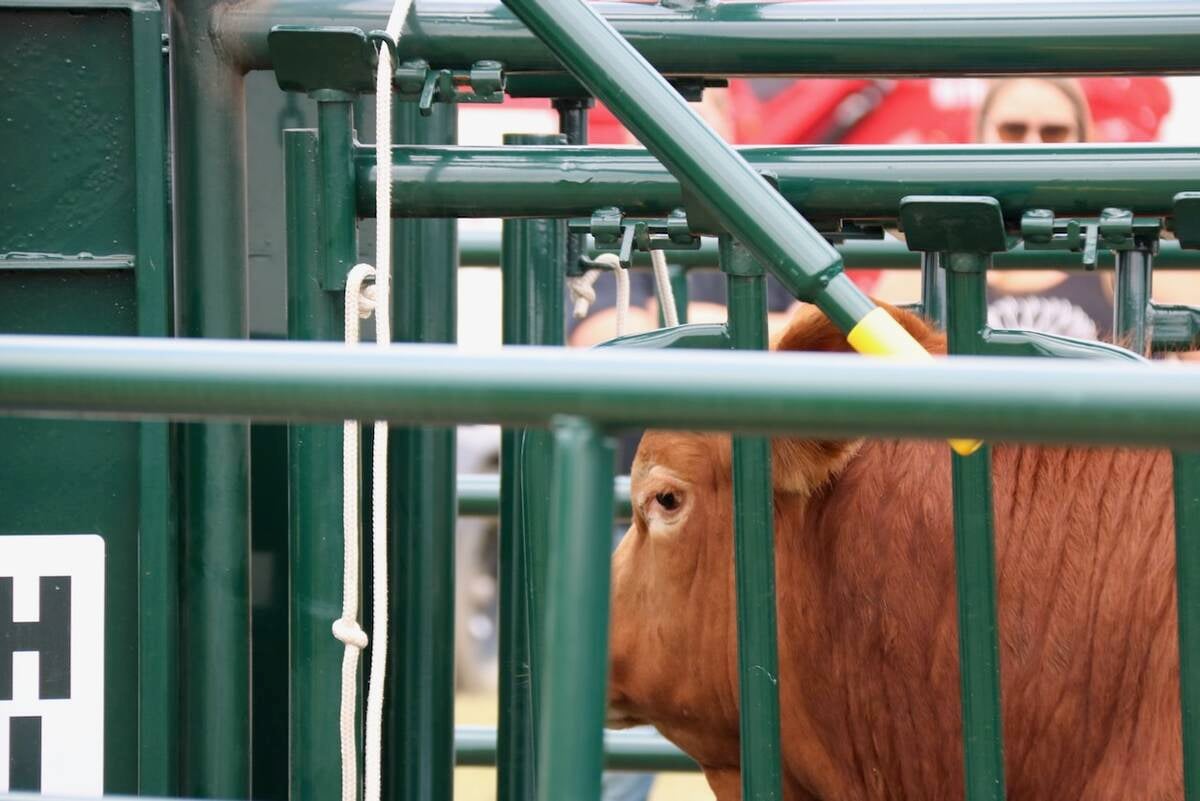Mass medicating with antibiotics can impact human medicine and consumer backlash is bad for the industry
Pork producers need to change their mindset away from mass medications using antibiotics as a first choice, says a professor of veterinary medicine.
“In the future, I think we should be looking at vaccines as the default rather than antimicrobials,” said John Harding of the University of Saskatchewan’s Western College of Veterinary Medicine.
“The reason for that is antimicrobials have an impact on resistance at the farm level, (which could) potentially have an impact as spillover in human medicine.… Resistance is real.”
Harding spoke at the recent Sask-atchewan Pork Industry Symposium in Saskatoon, where he focused on vaccines and the social license to produce pork.
Read Also

Good handling equipment a must on cattle operations
It’s important for the safety of producers and everyone else dealing with their stock that handling equipment is functional and safe.
He said the public’s perception that massive amounts of antimicrobials are used on farms to treat disease or in anticipation of a disease is bad for the industry.
“It’s mass medication that is problematic, and we really cannot be using that as the default for that much longer,” he said.
He thinks most producers would continue to select antimicrobials over vaccines, but that’s probably the wrong decision in most cases from a social licence perspective.
“It could be that the producer is still not aware of the issues or extent of the issues, hasn’t experienced resistance first hand, is struggling with the cost side of the business and the labour side as well,” he said.
“In a conventional farm where you’ve got the antibiotics that you can grab off of the shelf quickly, my guess is eight farms out of 10 would probably go for the antibiotic before the vaccine if there’s a cost differential and if there’s a labour differential.… I think what they should be doing is selecting the vaccine even if it costs more and even if it’s not 100 percent effective and then using the end microbial as the additional that they may or may not need to bring whatever disease under control.… So our default should be vaccine use, and I don’t think we’re there yet in the industry.”
Harding said there is still confusion about what consumers want, despite ongoing research.
Studies show consumers want pork that is free of residue, antimicrobials and hormones. They want a safe, wholesome product at a low price.
Harding said consumers’ ideas about safe food are confusing.
“Keeping pigs healthy in farms without the use of antimicrobials is very difficult, so we would turn to vaccines and better management to do that, and I think you need both of them hand in hand,” he said.
“So I would have thought, logically speaking, having vaccines as a substitute for antimicrobials to keep pigs healthy would be the way we should go.”
However, Harding is surprised with research results that indicate consumers are reluctant to buy pork that comes from pigs that have been vaccinated.
“To me, that is a positive outcome that would be a win-win for everybody: the producer, the pig, the consumer,” he said. “I guess that’s why I’m confused. I don’t know where that’s coming from.”
He thinks what may be occurring in the livestock sector is a spillover effect in which a certain segment of the public is reluctant to vaccinate against common childhood diseases or seasonal influenza.
Another possibility is that the general public doesn’t understand agriculture, particularly intensive livestock production.
“When you don’t understand something, it basically becomes fearful, so don’t go there until you understand it,” he said.
Harding said education is the key to bridging the gap between the consumer and farmer, particularly with intensive livestock production.
“There’s various people who can take lead roles in that,” he said.
“You’ve got the veterinary community; the pork industry in general could be taking a bigger role.”
Another important segment is grade school educators who may not be scientifically literate regarding agriculture and medicine.
“I think they are very influential people, and they can send the wrong message very quickly,” Harding said.
“So maybe we should be educating the educators as much as educating the general consumer.”















